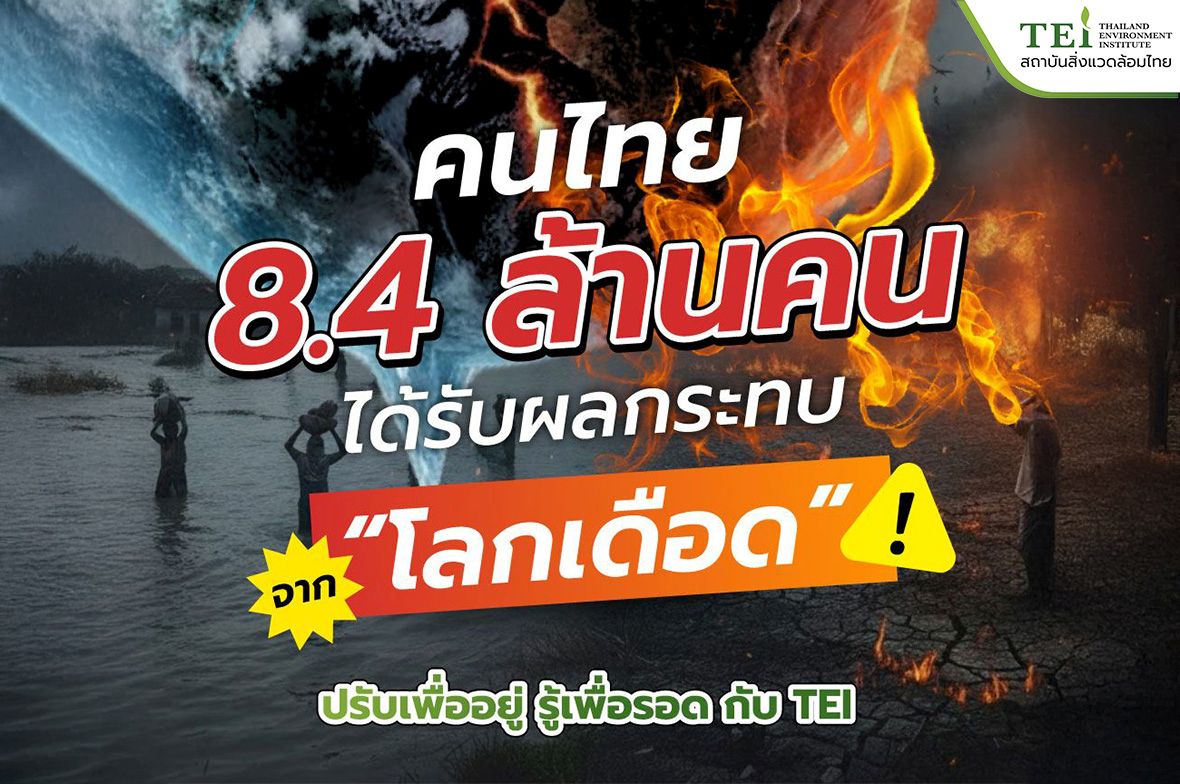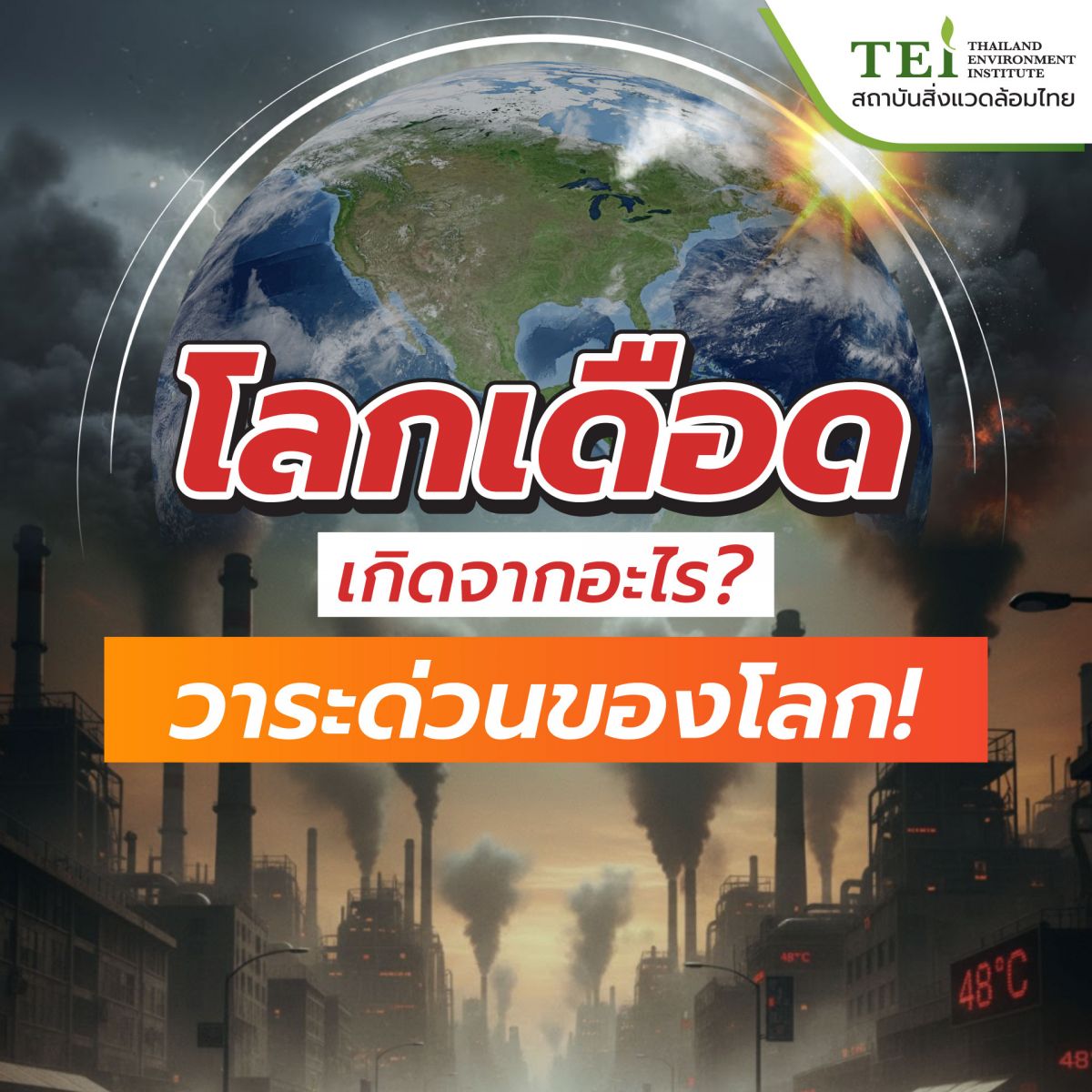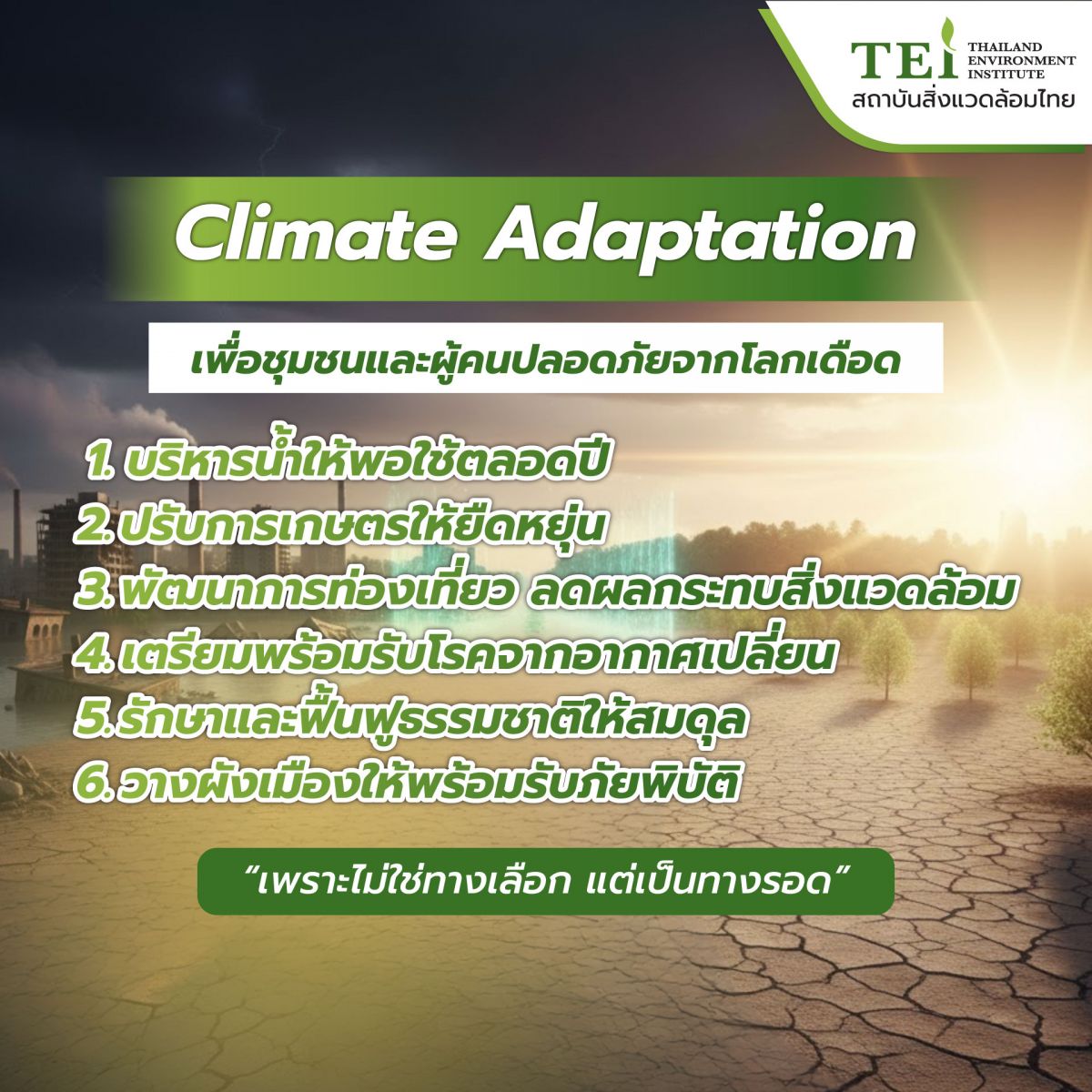
Thematic Areas: Climate Adaptation
When nature moves fast, "Global Boiling" is a problem knocking on our front door. The impacts we are seeing now are faster, more severe, and harder to predict. Therefore, "adaptation" is no longer an option for anyone; it is the only path to survival. We must urgently "Adapt to Live, Know to Survive." Climate Adaptation is not the agenda of any single country; it is the critical agenda for everyone on Earth.

In the past, we might have been able to somewhat predict natural events and weather patterns. But today, "Global Boiling," or Climate Change, has altered everything to the point of being almost unpredictable. This very uncertainty makes responding more difficult than ever before. Disasters often strike without warning, leading to widespread loss of life and property.
The current situation underscores that the "losses" from reacting to unpredictable climate conditions are continuously soaring. We are not just facing property damage; we are facing an "economic catastrophe" that affects the security of all humankind.
Extreme disasters are occurring more frequently and with greater intensity every year. The following figures are undeniable proof of the increasingly high price we must pay.
The Global Picture: In 2024, damages from climate-related natural disasters totaled over 417 billion USD, exceeding the decadal average by 15%. Europe: Major floods in September 2024 devastated Central and Eastern Europe, causing combined damages of over 1.6–2.1 billion EUR across several countries. In Spain alone, damages reached 16.5 billion EUR, with at least 232 fatalities.
These are warning signs that when disaster strikes suddenly, the resulting damage is beyond the capacity of a normal response.
Climate Adaptation is not just an environmental response method; it is a survival skill for the modern era. In a time of increasingly volatile weather, overlooking adaptation is equivalent to leaving our lives, property, and incomes at risk.
Thailand itself has figures that clearly reflect this urgency. Over the past 20 years:
Drought: Caused over 17 billion THB in damages, affecting an average of over 8.4 million people annually.
Storms (Windstorms): Damaged over 1.3 million homes cumulatively, with more than 556 deaths.
Floods (Inundation): Occurring more frequently in many areas, even after some communities have relocated to escape the water.
Major Disasters (including tsunamis): Resulted in over 11,000 deaths and caused massive economic damage.
Not an Option, but a Path to Survival
This is why Climate Adaptation plays a crucial role as a "shield for life, property, and food security." Climate change doesn't just stop at environmental destruction; it is directly eroding public assets and incomes by destroying supply chains and increasing the cost of living.
In the context of adaptation, Climate Adaptation refers to actions that enable humans, economic systems, and society to coexist with a changing climate. The primary goal is to "reduce vulnerability" to threats from both extreme events and continuous impacts. Adaptation in this context means building "resilience" for households and communities, allowing all sectors to mitigate unforeseen damages and recover more quickly after disasters. All of this underpins economic and personal security.
The Thailand Environment Institute (TEI) wishes to be an organization that places importance on, and steps up to seriously address, Climate Adaptation. We believe that "adaptation" should not be confined to reports or meeting rooms; it must become an "intellectual weapon for the Thai people"—a weapon that helps us survive, understand, and prepare for a world that is relentlessly changing.
This initiative is driven under the framework of the National Adaptation Plan (NAP), which serves as a vital guideline for strengthening the "country's resilience" to cope with the impacts of a volatile climate in all dimensions.
There are 6 key areas at the heart of adaptation:
Water Resource Management: Developing and managing water efficiently, in times of both drought and flood.
Agriculture and Food Security: Adapting the agricultural system to be climate-resilient and maintaining the nation's food security.
Tourism: Developing tourism approaches that are in harmony with nature and reduce environmental impact.
Public Health: Strengthening preparedness to prevent and respond to diseases arising from climate change.
Natural Resource Management: Conserving, restoring, and using resources in a balanced way to maintain stable ecosystems.
Human Settlements and Security: Planning cities and communities to be resilient, safe, and capable of recovery after disasters.
This plan is not merely a policy document; it is the "National Safety Index," reflecting how prepared we are to live with an unpredictable climate.

This is the starting point for the concept of "Adapt, Change, Safe." It is about making environmental issues and adaptation something that is not distant, but close to all our lives. TEI believes that "knowledge must be accessible." Whether you are in a city or a village, in the North, Central, Northeast, or South, everyone must have the opportunity to access information, understand it, and participate in adaptation, without class or regional divides, and without leaving anyone to face disasters alone.
However, Climate Adaptation is more than just "adaptation." It is a "survival skill for the modern generation," knowledge that must be passed on to everyone, breaking through barriers of class or status. Climate adaptation occurs at four levels: individual, community and city, national, and international, depending on appropriate application. It is a crucial step that will lead us all to a truly "safe and sustainable society."
The Thailand Environment Institute (TEI) is ready to serve as a central hub for knowledge on the climate crisis, providing data, facts, and guidelines for adaptation in daily life, so that all Thais can "be aware and ready to live with a changing world."
Follow the valuable knowledge from the Thailand Environment Institute (TEI) on our various channels. This is the "primary space" that will gather information on the global boiling crisis and adaptation strategies, so that the Thai people can "Adapt to Live, Know to Survive" together.
Share: